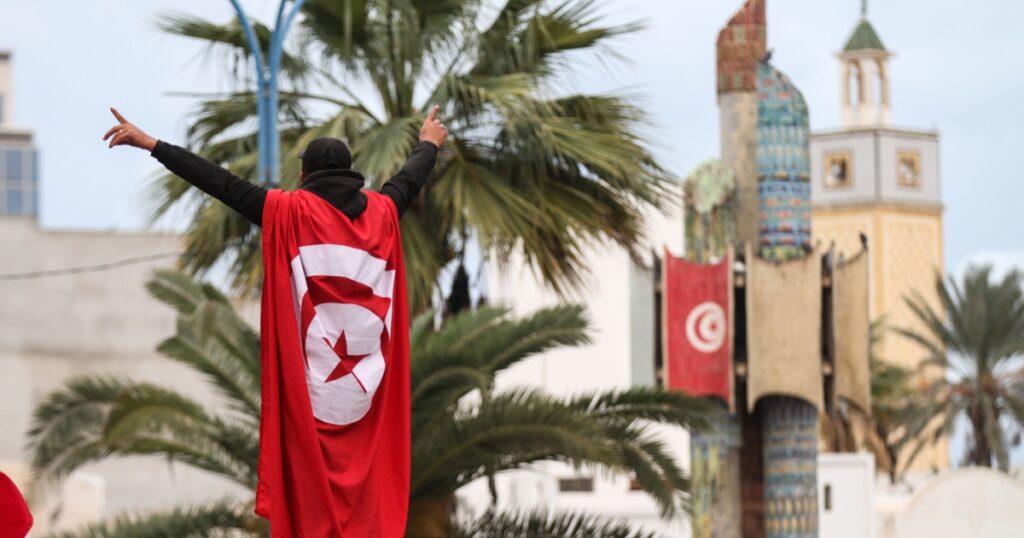Tunisian democracy is dying. If there was ever any doubt, the previous couple of months have revealed to all that President Kais Saied’s strikes on July 25, 2021, had been a coup d’état. Saied has seized all powers, arrested journalists and dissidents of all stripes, and incited violence towards migrants and black Tunisians. Tunisia is not labeled as free by Freedom Home or as a democracy by the Economist Intelligence Unit, and it has tumbled practically 50 spots since 2021 (73 to 121) in Reporters With out Borders’ Press Freedom Index.
Tunisia’s backsliding has represented a significant check for U.S. President Joe Biden’s said want to prioritize democracy in his international coverage. To date, the Biden administration’s response has been tepid. Whereas the US has expressed concern and minimize financial help, it has largely continued army help, provided its help for a $1.9 billion Worldwide Financial Fund (IMF) mortgage, invited and (actually) embraced Saied in Washington, and praised his world-record-low 11%-turnout elections as “an important preliminary step towards restoring the nation’s democratic trajectory.” There is no such thing as a doubt that Saied feels emboldened to crack down on dissidents right now by what he perceives as a inexperienced gentle from the US.
In view of Saied’s escalating crackdown, the 2 of us have assembled a wide selection of former diplomats, senior officers, and different members of the coverage group to signal an open letter calling on Biden to reorient U.S. coverage towards Tunisia. In it, we urge Biden to name a spade a spade. This was a coup, and the US shouldn’t reward such conduct with help, loans, reward, and photo-ops. Certainly, the US is legally certain to droop help within the wake of army coups or civilian coups by which the army performs a decisive function, because it did in Tunisia by shuttering the democratically-elected parliament. Because the IMF’s largest shareholder, the US must also maintain off on supporting the pending mortgage to Tunisia till Saied releases political prisoners and establishes a genuinely inclusive nationwide dialogue. We should always not fall into the lure of enabling and subsidizing dictatorship, a call that can hang-out the US and Tunisia in the long run.
We consider that such sustained strain represents the very best solution to reverse Tunisia’s backsliding. Even when it doesn’t change Saied’s calculus, it could change that of these round him, limiting the injury Saied can do to the system. In any case, the swift and common condemnation of Saied’s racist rhetoric towards migrants in February did lead his authorities to take some measures for his or her safety.
That is additionally larger than Tunisia. If the US is actually critical about shoring up democracies worldwide, it should ship a constant sign that there are prices to democratic backsliding. Lending our taxpayer {dollars} and legitimacy to Saied will solely encourage different populist leaders to consider that they can also get away with dismantling democratic establishments. Furthermore, our strategy right here sends a sign for the nice energy competitors that’s to return about the place we stand and about how we differentiate ourselves from our rivals.
We don’t count on all readers to agree with our coverage suggestions. However we hope to spark a critical debate about the right way to reset U.S. coverage — since it’s clear that the present strategy shouldn’t be working.
You may learn the letter right here: https://tunisiaopenletter.com/
Brookings doesn’t take institutional positions on points. The views on this commentary are solely these of the authors.




